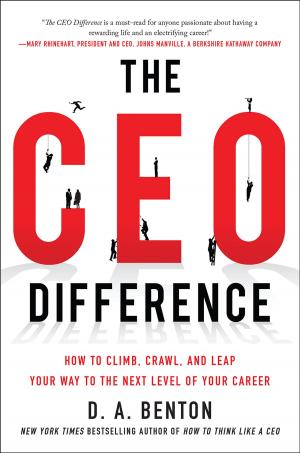Dignified Leadership
Curing the Cancer of Objectification
Business & Finance, Business Reference, Business Ethics, Management & Leadership, Leadership| Author: | Gregory S. Witkop | ISBN: | 9780999838419 |
| Publisher: | Gregory Scott Witkop | Publication: | February 2, 2018 |
| Imprint: | Gregory Scott Witkop | Language: | English |
| Author: | Gregory S. Witkop |
| ISBN: | 9780999838419 |
| Publisher: | Gregory Scott Witkop |
| Publication: | February 2, 2018 |
| Imprint: | Gregory Scott Witkop |
| Language: | English |
Healthy cells grow in a way that benefits the body and enables life. Cancer cells grow in a way that ravages the body, causing suffering and sometimes death. The key difference is a complex molecular system that enables healthy cells to “recognize” other cells as “self” and cooperate for mutual benefit. Cancer cells often lack this ability, expand past their mutually beneficial boundaries, and squeeze the life from everything in their path. Metaphorically, cancer cells do not recognize the dignity of cells around them and literally turn them into objects by destroying them.
Similarly, we humans can lose sight of the fact that we are all part of a greater whole and worthy of being treated with dignity. Like cancer cells, we can view everything and everyone else as objects to be used, rather than fellow human beings necessary for our own survival. When we treat our fellow human beings as objects, we demonstrate the signs of the cancer of objectification.
Objectification is the root of all forms of slavery and the often unconscious justification for the abuse of power. From sexual harassment in the workplace to date rape, from 9/11 to Nazi slogans at Charlottesville, from wage slaves to commercialized prisons, from prostitution to child sex trafficking – objectification causes universal and unimaginable suffering. Objectification is a societal cancer. The good news is: we can cure it. We can cure it because it is nothing more or less than an often unacknowledged way of thinking. Once we become aware of this catastrophic way of thinking, and replace it with a logically coherent and compassionate approach, we can change. We can choose to treat others with dignity as fellow human beings rather than mere objects.
This book will assist leaders in creating cultures intentionally designed to treat others with dignity and eradicate objectification. As the evidence will clearly show, leaders who choose this path will not only improve their followers’ lives, but also dramatically improve their own. In the process, their organization will exponentially increase in both capability and effectiveness. Regardless of scale or sector, from public service to for-profit corporations, from military units to non-profit NGOs, from hundreds of thousands of followers to a single parent leading a child, the benefits of dignified leadership are irrefutable.
Healthy cells grow in a way that benefits the body and enables life. Cancer cells grow in a way that ravages the body, causing suffering and sometimes death. The key difference is a complex molecular system that enables healthy cells to “recognize” other cells as “self” and cooperate for mutual benefit. Cancer cells often lack this ability, expand past their mutually beneficial boundaries, and squeeze the life from everything in their path. Metaphorically, cancer cells do not recognize the dignity of cells around them and literally turn them into objects by destroying them.
Similarly, we humans can lose sight of the fact that we are all part of a greater whole and worthy of being treated with dignity. Like cancer cells, we can view everything and everyone else as objects to be used, rather than fellow human beings necessary for our own survival. When we treat our fellow human beings as objects, we demonstrate the signs of the cancer of objectification.
Objectification is the root of all forms of slavery and the often unconscious justification for the abuse of power. From sexual harassment in the workplace to date rape, from 9/11 to Nazi slogans at Charlottesville, from wage slaves to commercialized prisons, from prostitution to child sex trafficking – objectification causes universal and unimaginable suffering. Objectification is a societal cancer. The good news is: we can cure it. We can cure it because it is nothing more or less than an often unacknowledged way of thinking. Once we become aware of this catastrophic way of thinking, and replace it with a logically coherent and compassionate approach, we can change. We can choose to treat others with dignity as fellow human beings rather than mere objects.
This book will assist leaders in creating cultures intentionally designed to treat others with dignity and eradicate objectification. As the evidence will clearly show, leaders who choose this path will not only improve their followers’ lives, but also dramatically improve their own. In the process, their organization will exponentially increase in both capability and effectiveness. Regardless of scale or sector, from public service to for-profit corporations, from military units to non-profit NGOs, from hundreds of thousands of followers to a single parent leading a child, the benefits of dignified leadership are irrefutable.















